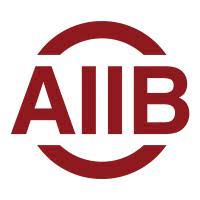- 18.03.2024
- Rights & Accountability
- Array
Civil Society Statement to the Board of Directors of the Asian Infrastructure Investment Bank re: the AIIB Accountability Framework
During 2024, the Asian Infrastructure Investment Bank will review its so-called Accountability Framework. In reality, this is a misnomer, as the Framework serves to actively undermine accountability. In April 2018, the AIIB’s Board approved a proposal to delegate the power to approve some projects to the bank’s management, rather than its 12-member Executive Board.
This Framework goes to the heart of the question of governance at the bank. Board members are accountable to their constituent governments, shareholders of the AIIB, for their decisions. Shareholder governments in turn are responsible to their citizens for ensuring that the Bank upholds its environmental and social standards in its lending operations. In essence, the project approval process by the Board provides an opportunity for civil society and potentially affected communities to raise their concerns with their representatives, to ensure decisions are well-informed and take account of potential harms.
Transferring the right of approval from the Board to Management undermines this crucial chain of accountability. It threatens the commitments made by shareholders that they would ensure the AIIB would uphold international standards and best practice.
The AIIB has set thresholds to determine which projects will still come before the Board, including, for example, whether a project is the first in a sector or a country, and whether the project is above a certain monetary threshold (currently $300 million for a sovereign project, $150 million for a non-sovereign project, and $35 million for an equity investment). However, such thresholds are not meaningful in terms of potential harms to local communities and the environment. In addition, public disclosure standards at AIIB are extremely weak with there being no indication of which projects are to be delegated to Presidential approval. This contributes to further undermining the ability of concerned stakeholders to flag potential problems to the Board or management.
The forthcoming Board review of the Accountability Framework would ideally reconsider the whole concept of delegation of approval from the Board to the President and make delegation the exception and not the norm.
Failing this, at a minimum, we ask that the review should move away from delegation based on monetary thresholds and ensure that:
- The riskiest projects – those defined ‘Higher Risk Activities’ in the AIIB’s Environmental and Social Framework[1] – should be considered by the Board, not delegated; in addition, projects in fragile and conflict-affected areas should not be delegated;
- All fossil fuel projects, as well as infrastructure services dedicated to support any of these activities, should be considered by the Board;
- All financial intermediary investments, and all infrastructure investment trust (InvIT) projects, given their higher risk exposures, should only be considered by the Board;
- All proposed projects that will be delegated for approval by the President must be flagged on the AIIB’s website within 60 days; and all projects which have been approved through the Accountability Framework must be clearly marked as such on the AIIB’s website.
- In addition, all projects must be screened against the ESF and that risk assessment documentation for all delegated projects, including co-financed projects, should be made available prior to project delegation under the Accountability Framework.
- The Board should retain the power to review or consider any project that has been approved by the President under delegated authority, including any changes to the project, if they so determine. Such determination can be based on the potential integrity, reputational, and environmental and social harms caused by a project.
Signed:
AbibiNsroma Foundation
Accountability Counsel
Action for Sustainable Environment (ASE)
Ardha Jabesa Foundation
Bank Climate Advocates
Both ENDS
BRICS Feminist Watch
CAFOD
Centre for Financial Accountability
Centre for Human Rights and Development (Mongolia)
Co-ordination Office of the Austrian Bishops’ Conference for International Development and Mission (KOO)
Community Empowerment and Social Justice Network (CEMSOJ)
Equitable Cambodia
Fundación CAUCE: Cultura Ambiental – Causa Ecologista (Argentina)
Fundeps (Argentina)
Gender Action
Global Responsibility (Austria)
Green Development Advocates (GDA)
Inclusive Development International
Jamaa Resource Initiatives, Kenya
Latinoamérica Sustentable
MiningWatch Canada
NGO Forum on ADB
Oxfam
Protección Internacional, Mesoamerica Office
PWESCR
Recourse
Rivers without Boundaries International Coalition
Sustentarse – Chile
Urgewald
[1] The AIIB’s ESF usefully defines Higher Risk Activities as follows: “ (a) all Category A activities; and (b) selected Category B activities, as determined by the Bank, that may potentially result in: (i) Land Acquisition or Involuntary Resettlement; (ii) risk of adverse impacts on Indigenous Peoples and/or vulnerable groups; (iii) significant risks to or impacts on the environment, community health and safety, biodiversity, and/or cultural resources; (iv) significant retrenchment of more than 20 percent of direct employees and recurrent contractors; and/or (iv) significant occupational health and safety risks.” See: https://www.aiib.org/en/policies-strategies/_download/environment-framework/AIIB-Environmental-and-Social-Framework_ESF-November-2022-final.pdf Page 22, Footnote 7.

